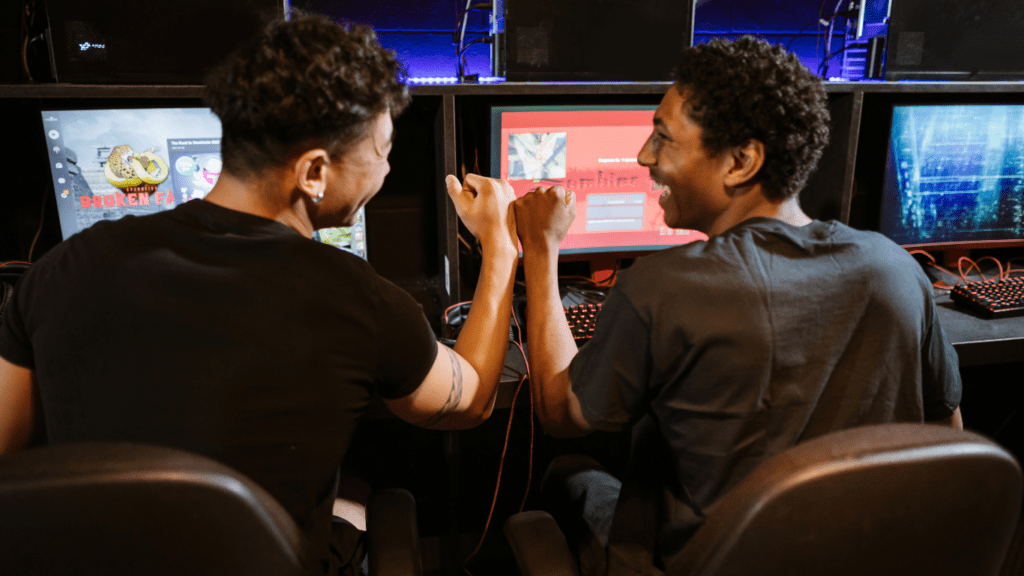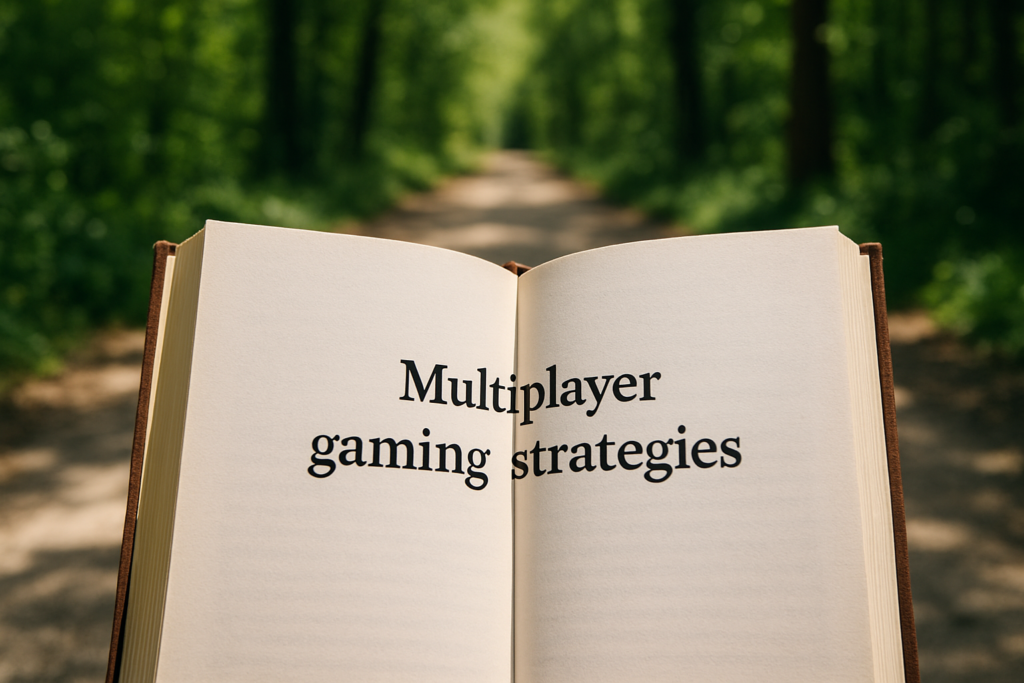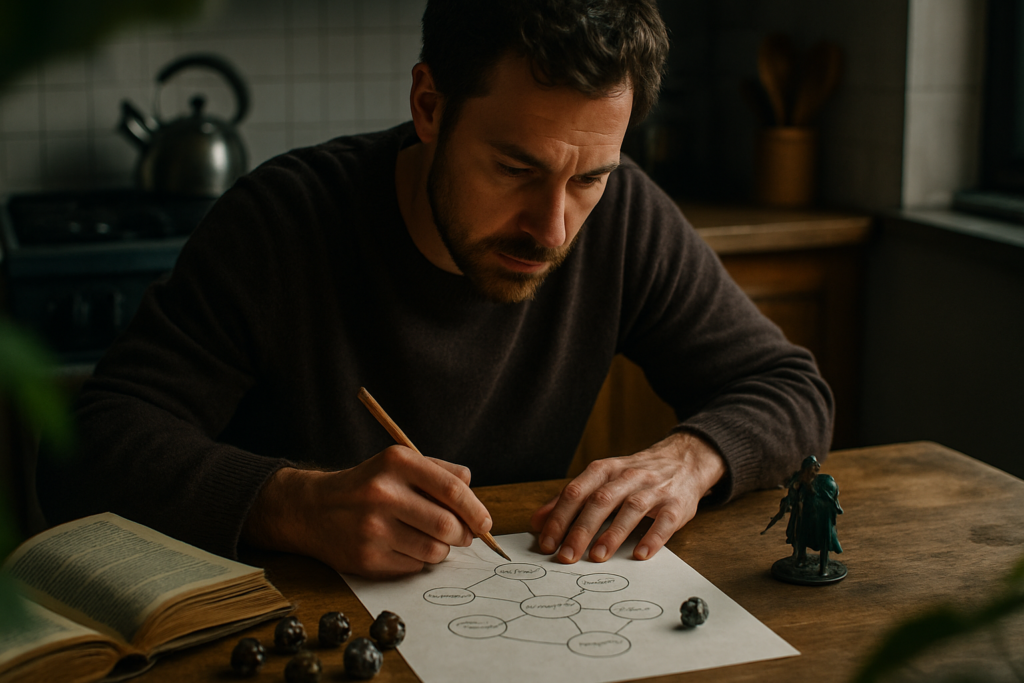Stepping into the world of multiplayer games is an exhilarating experience, where teamwork and coordination are key to victory. In the realm of online gaming, effective team communication can make all the difference between a crushing defeat and a glorious triumph. As a seasoned player, I’ve witnessed firsthand the power of clear and concise communication among team members in achieving our common goal.
In this article, I’ll delve into the essential strategies that can elevate your team’s performance in multiplayer games. From utilizing in-game chat features to coordinating strategies in real-time, mastering the art of communication is crucial for success in competitive gaming environments. Join me as I explore the dynamic ways in which effective team communication can turn the tide in intense multiplayer battles.
Understanding the Importance of Team Communication in Multiplayer Games
Effective team communication is the cornerstone of success in multiplayer games. I’ve experienced firsthand how crucial it is to communicate clearly and efficiently with teammates. Without proper communication, the outcome of a game can easily sway from victory to defeat.
The Role of Communication in Team Success

Communication plays a pivotal role in determining the success of a team in multiplayer games. It fosters collaboration, enhances coordination, and enables quick decision-making. As I’ve learned through my gaming experiences, teams that communicate effectively are more likely to achieve their goals and outperform their opponents.
Common Communication Challenges in Gaming
Despite its importance, team communication in gaming is not without its challenges. From dealing with different communication styles to managing conflicts, gamers often face obstacles that can hinder effective teamwork. Overcoming these challenges requires patience, understanding, and a willingness to adapt one’s communication approach to ensure smooth gameplay.
- Choosing the Right Communication Tools
When it comes to effective team communication in multiplayer games, selecting the right communication tools is crucial for success. In gaming environments, where coordination and quick decision-making are key, utilizing appropriate platforms enhances overall gameplay experience and team performance significantly. - Voice Chat Options
In multiplayer games, voice chat applications play a vital role in enabling real-time communication among team members. Platforms like Discord, TeamSpeak, or in-built game chat systems provide instant voice communication, allowing players to strategize, coordinate movements, and react swiftly to in-game situations. The seamless nature of voice chat enhances teamwork, fosters a sense of community, and contributes to a more immersive gaming experience. - Text-Based Communication Apps
Text-based communication applications serve as valuable tools for multiplayer game communication, especially for players who prefer typing over speaking. Platforms like Slack, WhatsApp, or in-game messaging systems offer a convenient way to convey messages, share information, and coordinate strategies efficiently. Text-based tools are particularly useful for providing detailed instructions, sharing resources, and communicating in situations where voice chat may not be feasible, ensuring effective communication across the team.
Developing Effective Communication Strategies
To enhance team communication in multiplayer games, I focus on two key aspects: establishing clear roles and responsibilities and fostering a positive team culture. These strategies are pivotal in optimizing teamwork and achieving success in competitive gaming environments.
- Establishing Clear Roles and Responsibilities
In multiplayer games, assigning clear roles and responsibilities to each team member is crucial for effective communication and coordination. By clearly defining who is responsible for specific tasks or objectives, teams can prevent confusion, streamline decision-making, and improve overall performance. For instance, designating a player as the shot-caller for strategy development ensures a centralized decision-making process, leading to efficient communication and swift execution of plans. - Creating a Positive Team Culture
Building a positive team culture cultivates an environment where open communication thrives, fostering collaboration and trust among team members. Encouraging respect, constructive feedback, and a supportive atmosphere promotes active participation and engagement. In multiplayer games, a positive team culture boosts morale, motivation, and team cohesion, thereby enhancing communication effectiveness and overall team performance. - Implementing Strategies in Various Game Genres
When it comes to team communication strategies in multiplayer games, different genres require distinct approaches to maximize success. Let’s explore how effective communication tactics can be implemented in various game genres.
Strategy Games
In strategic games like StarCraft or Civilization, precise communication is key to coordinating complex moves and tactics. Assigning specific roles to team members, such as resource management or scouting, ensures smooth gameplay and strategic decision-making without overlap. Clear, concise commands and timely updates help maintain a competitive edge in these intellectually demanding games.
- First-Person Shooters (FPS)
In fast-paced shooters like Call of Duty or CS: GO, quick and accurate communication can mean the difference between victory and defeat. Establishing call-out protocols for enemy locations, coordinating flanking maneuvers, and sharing real-time updates on objectives are vital for team success. Efficient communication through short, actionable phrases and continuous updates keeps the team well-informed and agile in dynamic combat situations. - Multiplayer Online Battle Arenas (MOBA)
MOBAs like League of Legends or DOTA 2 rely heavily on teamwork and coordination among players with unique roles and abilities. Crafting a communication strategy that includes lane assignments, gank warnings, and objective priorities is essential for strategic gameplay. Implementing a clear communication hierarchy and designating shot-callers for decisive moments enhances team coordination and accelerates decision-making processes, leading to impactful plays and successful outcomes.
Sharon Harris
Sharon Harris is a dedicated article writer and a valued contributor to Gear Up Play On, where his extensive knowledge and passion for gaming shine through in every piece he creates. Sharon’s expertise encompasses a wide array of gaming topics, from in-depth game reviews and gear analysis to the latest industry news and trends. Joining the Gear Up Play On team, Sharon brought with him a wealth of experience and a deep understanding of the gaming world.



